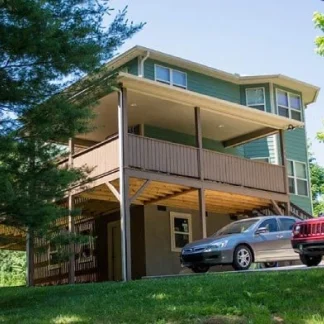Family Preservation Services
Family Preservation Services is a private rehab located in Asheville, North Caro...
Willow Place is a private rehab located in Asheville, North Carolina. Willow Place specializes in the treatment of alcoholism, drug addiction, opioid addiction, and substance abuse.
Contact us for more information: (561) 623-0142

Connect with Willow Place by calling their admissions team directly.
(561) 623-0142 Website Get DirectionsThe Joint Commission, formerly known as JCAHO, is a nonprofit organization that accredits rehab organizations and programs. Founded in 1951, the Joint Commision's mission is to improve the quality of patient care and demonstrating the quality of patient care.
Joint Commission Accreditation: Yes
Group therapy is any therapeutic work that happens in a group (not one-on-one). There are a number of different group therapy modalities, including support groups, experiential therapy, psycho-education, and more. Group therapy involves treatment as well as processing interaction between group members.
Trauma therapy addresses traumatic incidents from a client's past that are likely affecting their present-day experience. Trauma is often one of the primary triggers and potential causes of addiction, and can stem from child sexual abuse, domestic violence, having a parent with a mental illness, losing one or both parents at a young age, teenage or adult sexual assault, or any number of other factors. The purpose of trauma therapy is to allow a patient to process trauma and move through and past it, with the help of trained and compassionate mental health professionals.
Trauma therapy addresses traumatic incidents from a client's past that are likely affecting their present-day experience. Trauma is often one of the primary triggers and potential causes of addiction, and can stem from child sexual abuse, domestic violence, having a parent with a mental illness, losing one or both parents at a young age, teenage or adult sexual assault, or any number of other factors. The purpose of trauma therapy is to allow a patient to process trauma and move through and past it, with the help of trained and compassionate mental health professionals.
Family Preservation Services is a private rehab located in Asheville, North Caro...
Criminal Justice – Women at Risk Program is a private rehab located in Asheville...
October Road provides evidence-based treatment methods, comprehensive service pl...
Insight Human Services - Women's Recovery Center is a nonprofit rehab located in...